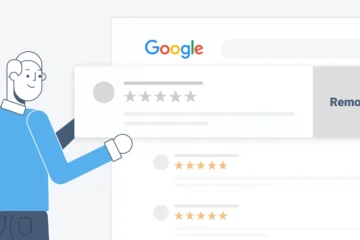Debt is a reality that many people face at some point in their lives. Whether it’s from student loans, credit cards, medical bills, or mortgages, it’s something that touches millions of households. Yet, despite being so widespread, there remains a significant stigma surrounding debt. For some, the thought of being in debt brings feelings of shame, embarrassment, or failure, which often leads people to hide their financial struggles rather than address them.
This stigma can have a profound impact on mental health, relationships, and decision-making. It can lead individuals to avoid seeking help, delay taking necessary action, or make poor financial choices to escape their debt. But understanding the stigma surrounding debt and addressing it head-on can help people regain control of their finances and their mental well-being.
In this article, we’ll explore why debt carries such a stigma, how it affects those who are struggling, and how addressing it with strategies like debt consolidation can help alleviate both the financial and emotional burdens associated with it.
1. The Roots of Debt Stigma
The stigma surrounding debt doesn’t just come from financial troubles—it’s shaped by societal attitudes toward money and success. We live in a culture that often ties a person’s worth to their financial situation. The idea that “good people” are financially responsible and “bad people” are those who have accumulated debt is deeply ingrained in society.
This mentality can be especially harmful when people find themselves in financial trouble due to circumstances beyond their control, like job loss, medical emergencies, or rising living costs. In these situations, debt isn’t a reflection of poor decisions, but rather a necessary tool for survival. However, the stigma can still make it feel like you’re failing.
The pressure to live up to certain financial expectations can create a significant barrier to seeking help. People may feel that admitting they have debt means admitting failure or inadequacy, even though debt is a normal part of life for many. This stigma can prevent individuals from reaching out for support, whether it’s through debt consolidation programs, counseling, or other financial resources that could help them get back on track.
2. The Psychological Toll of Debt
The emotional weight of debt is far greater than the financial burden alone. The stress and anxiety that come with owing money can lead to serious mental health challenges. Studies show that financial stress, especially from significant amounts of debt, is linked to increased rates of anxiety, depression, and other mental health conditions.
For many, worrying about debt can lead to sleepless nights, a sense of constant pressure, and a lack of control over their financial situation. When people avoid talking about their debt because of shame or fear of judgment, it can exacerbate the feelings of isolation and helplessness. Debt, when combined with stigma, can make individuals feel like they are alone in their struggle, even though the reality is that millions of people share similar challenges.
The psychological toll is even more severe when individuals try to manage debt by cutting back on essential expenses, like healthcare, groceries, or utilities, to make ends meet. These sacrifices, while intended to avoid deeper financial trouble, can have lasting effects on mental health and physical well-being. People may push themselves to the brink, believing they have to suffer in silence, all due to the stigma of being in debt.
3. Avoiding Help: The Dangers of Ignoring Debt
Because of the stigma attached to debt, many people choose to ignore their financial issues instead of seeking the help they need. When someone is too embarrassed to discuss their debt, they might try to deal with it on their own, often with negative results. They may attempt to handle it by making minimum payments, hiding their problems from family and friends, or avoiding creditors altogether.
In some cases, the refusal to face the reality of debt can make the problem worse. Ignoring bills, missing payments, or falling into a cycle of payday loans can quickly lead to more serious financial consequences, including damage to credit scores, higher interest rates, and even wage garnishment.
The fear of facing debt head-on can also prevent people from exploring practical solutions, such as debt consolidation. Debt consolidation can help streamline payments, reduce interest rates, and make it easier to manage multiple debts. However, without addressing the stigma of debt, many individuals never take this step, which prolongs their financial distress.
4. Breaking the Cycle: Overcoming the Stigma
Breaking the stigma surrounding debt starts with changing the way we think about money. Acknowledging that debt is a common and sometimes necessary part of life can help reduce the shame that often accompanies it. It’s essential to understand that being in debt doesn’t define who you are as a person or indicate failure—it simply means that you’ve encountered challenges that require financial solutions.
There are several ways to begin breaking the cycle of shame and fear around debt:
- Normalize Conversations About Debt:
Talking about money, including debt, is an important step toward removing the stigma. The more we openly discuss financial struggles, the less shame and embarrassment people will feel. Family, friends, and support groups can provide encouragement and understanding, rather than judgment.
- Seek Professional Help:
Financial professionals, such as credit counselors, debt consolidation specialists, or even financial therapists, can offer guidance and solutions to help you manage debt. These experts can help you create a realistic plan to reduce or eliminate your debt, and they can provide a safe space to talk about the challenges you’re facing
- Take Small Steps:
If you feel overwhelmed by debt, start by addressing the smaller, more manageable debts first. This can help build momentum and give you the confidence to tackle larger debts over time.
- Consider Debt Consolidation:
If you’re juggling multiple debts with high interest rates, debt consolidation can help by combining your debts into one easier-to-manage payment with a lower interest rate. This is a smart way to reduce stress and regain control over your finances without having to face the stigma of dealing with multiple creditors.
5. Moving Forward: Creating a Healthier Relationship with Money
The ultimate goal is to shift the way we think about money and debt, so it doesn’t become an emotional burden. Debt doesn’t have to define your future, nor does it have to impact your mental health in such a drastic way. By addressing debt with a clear and practical plan, and breaking the stigma that surrounds it, you can move forward toward a more balanced and healthier financial life.
Financial freedom begins with understanding that no one’s financial journey is perfect. We all face challenges, but it’s how we handle them that makes the difference. When you let go of the shame and embrace solutions like debt consolidation, seeking help, and setting realistic financial goals, you take control of your finances and, most importantly, your peace of mind.
Conclusion: Breaking the Silence Around Debt
The stigma surrounding debt can have a damaging impact on both your financial and emotional well-being. But by confronting the issue and seeking help, whether through conversations, professional guidance, or practical tools like debt consolidation, you can break free from the negative effects that debt has on your life. Remember, you are not alone in this—many people face similar challenges, and with the right support, you can regain control of your finances and reduce the emotional burden that debt carries.
Stay in touch to get more news & updates on hintinsider!




